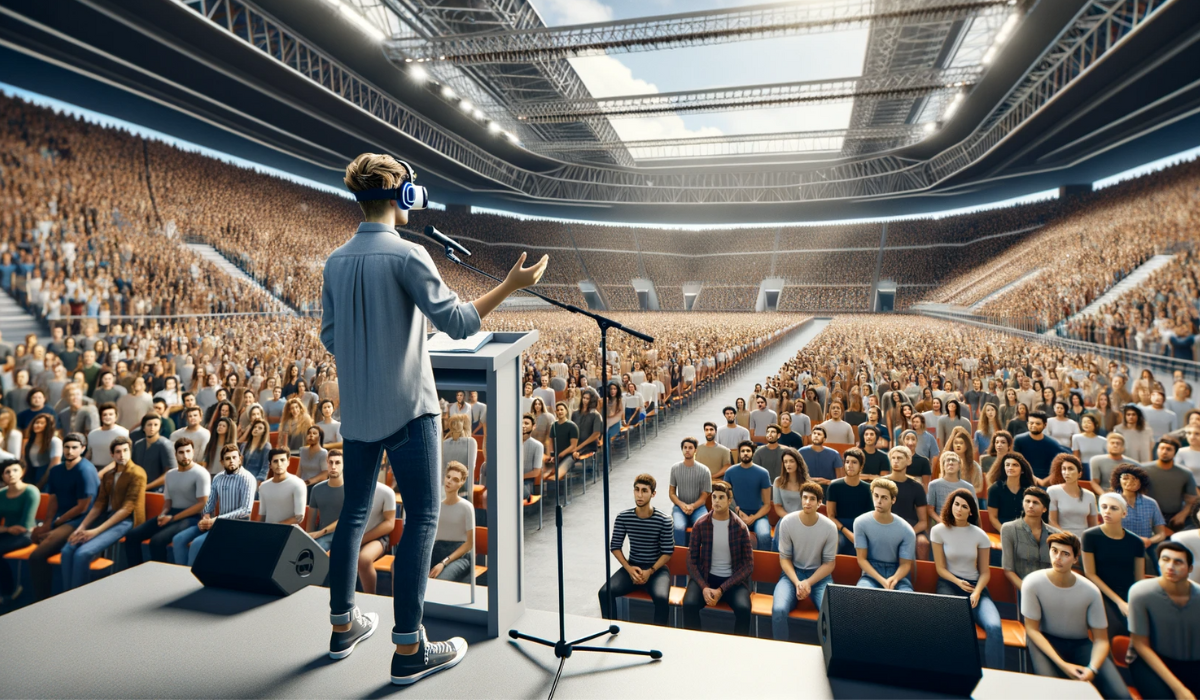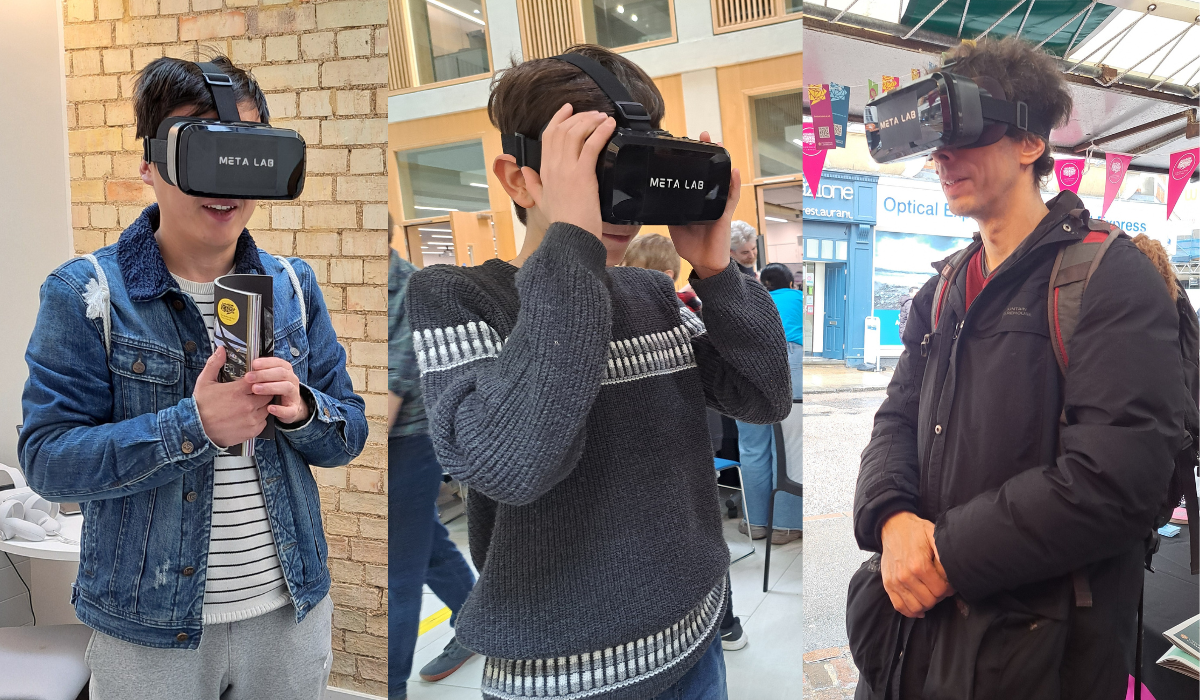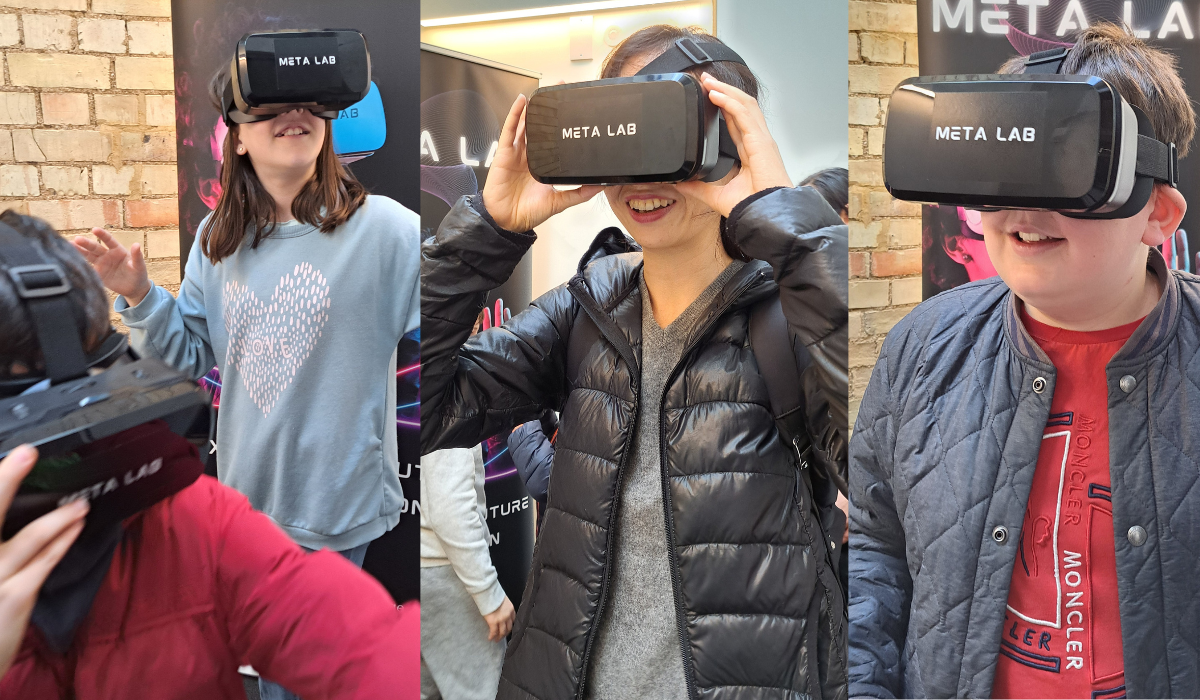
Lucy Cavendish College wins National Innovation Award
The judges praised the College for using creative and innovative techniques to not only educate students but to empower them to drive positive change.
Innovative VR platform transforms users into confident and skilled public speakers.
At Lucy Cavendish College’s multi-award-winning Immersive Technology Lab, we experiment with emerging digital technology to create transformational experiences. Our flagship project seeks to transform students into confident and skilled public speakers with the help of artificial intelligence and virtual reality exposure therapy. On the free platform, users build resilience through a self-paced gamified journey where virtual reality audiences increase as tasks are completed.
In physical reality, users might be practising alone in their bedrooms but in virtual reality, they can experience the sensation of presenting to a range of audiences. They may begin by practising in a conventional classroom environment in front of a small audience of 10, but they can quickly advance far beyond this and present in virtual reality stadiums in front of 1000s. The ability to repeatedly overexpose like this is a game changer.
It is a known issue that the majority of university students fear public speaking which is capping their potential. Our platform proactively addresses this issue by equipping users with key skills and empowering them to build resilience.

Lab Director, Dr Chris Macdonald, says “Although early testing was exceeding expectations, it was important that I stress-tested the fundamentals prior to scaling. I needed to test the robustness of the online platform, the hardware choices, and the concept itself. In service of this, I launched trials across Cambridge. I wanted a diverse participant pool of all ages and backgrounds so I organised demonstrations at a range of events–including a local community church event, a market square stand, and a VR experience room at the Cambridge Festival.”

“I am delighted to reveal that the Cambridge trials were a resounding success with over 1000 participants providing positive user feedback. The feedback further confirmed that the platform has immense potential to expand career opportunities (e.g. This is such a powerful tool; if this was around when I was a student, I would have had the confidence to become a teacher).”
“Now that we have stress-tested the fundamentals, we can go into greater depth with focus groups and follow-up sessions. By scaling the sample sizes throughout the year, I can better assess statistical significance, and by tracking data from multiple groups in different settings, I can assess for convergent evidence. This is a crucial phase to ensure that benefits translate into real-world long-term positive impacts. I am working with groups of staff and students across Cambridge University to facilitate this.”
“The VR Public Speaking Platform is quickly gaining a lot of positive momentum and we have been invited to exhibit at DigiGov, the Oxford Science & Ideas Festival, the British Science Festival, and New Scientist Live. These events will provide ample opportunities for people outside of Cambridge to experience the platform and ask any questions.”

“There is massive untapped potential with VR technology which is currently largely used for entertainment purposes. There is huge scope to innovate and create deeply immersive life-changing therapeutical and educational experiences at scale. There is a real chance to revolutionise how we think about preparing students for the real world and unlocking their potential. This is not only a unique chance to think about the future of education. This is a chance to create it.”
To find out more, you can contact Dr Chris Macdonald here.